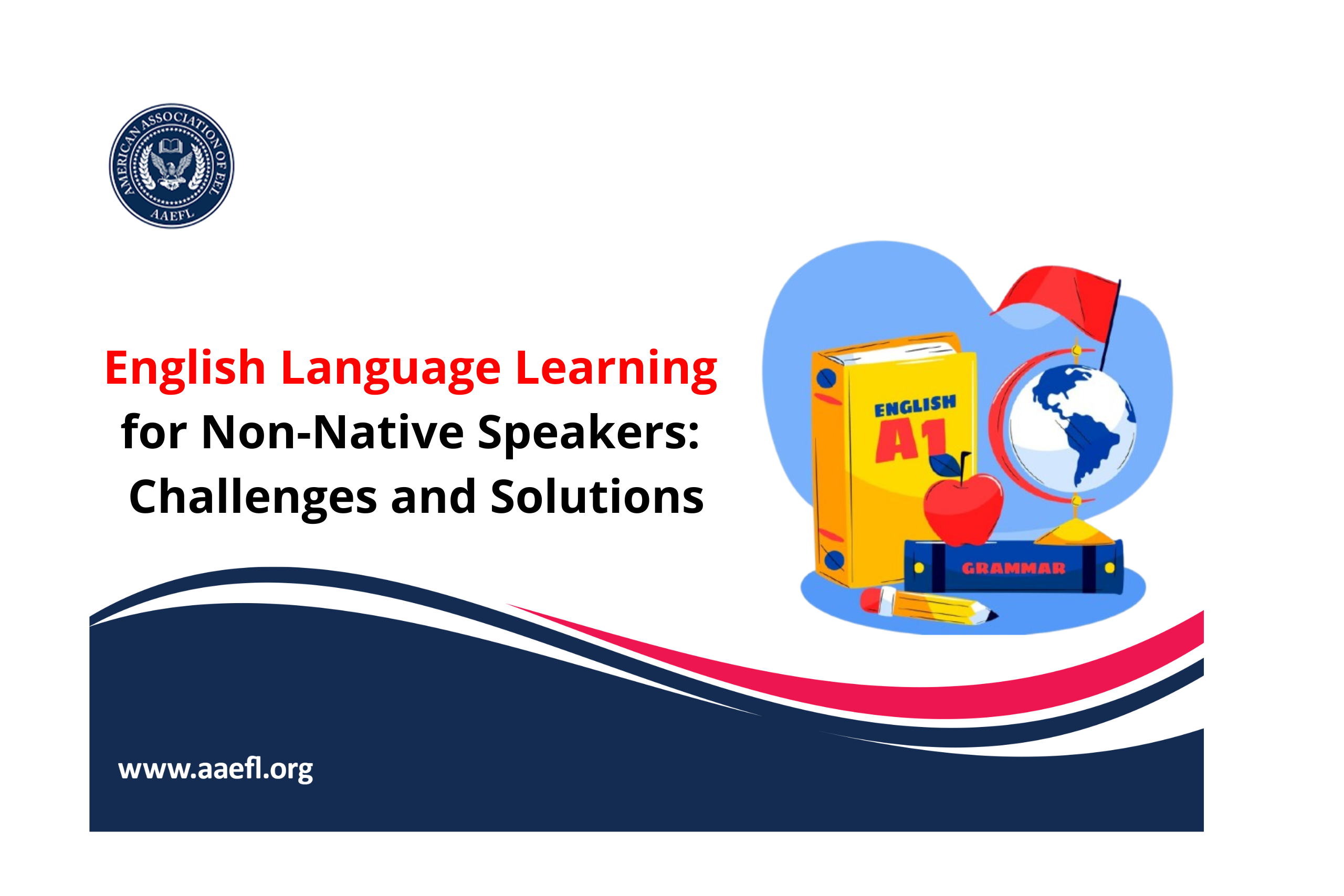Your new adventure starts when you start learning a new language. After evil experiences of learning a new language, nothing is more awkward than being foreign to oneself. Proficiency in the English Language is the key to professional excellence, personal growth, international touring, and the world’s insights. It opens up multiple career prospects and facilitates socialization among people of different cultures worldwide.
Challenges and Solutions
1. Limited Exposure
The first challenge that most non-native speakers face is a lack of exposure to the use of English daily. Without consistent exposure, the ability to build fluency and confidence is made difficult.
Solution: The students should look for online forums or language exchange sites where they can interact with native speakers as well as other learners. The sites offer learners an opportunity to practice in a real-life situation and thus improve listening and speaking while being encouraged by others.
Scenario: A native student of village origin hardly ever hears English-speaking sounds in day-to-day practice, so picking up the correct pronunciation is somewhat challenging.
Fix: English-speaking online platforms can give the freedom to interact with native speakers and improve fluency naturally.
2. Lack of Conversational Practice
Lack of frequent interactions in English compels learners to lack fluency in speaking and may also face severe problems in natural pronunciation.
Solution: Speaking fluently is critical to gaining self-confidence and automaticity in speaking. One must practice with a language partner or hire a tutor who can listen to him or her and make corrections. If possible, carry on daily conversations, even short ones, that will help memorize vocabulary and sentence structures.
Scenario: A software developer starts working with clients from other countries where his clients cannot speak the English language of his or her country.
Fix: This language practice with language partners via video calls will boost their confidence to carry out the same in real life.
3. Limited Access to Learning Resources
Some may not have adequate English learning material, and thus the student’s progress gets delayed.
Solution: The Internet holds so much material: there are video lessons, practice exercises, and even interactive courses. Such websites enable the students to study for as long as they want to, in different aspects of the language. Using free and paid materials online helps bridge gaps and improve learning.
Scenario: A student, who cannot afford expensive courses in a foreign language, has poor skills due to his weak economic background.
Fix: He can use free online platforms such as YouTube, Duolingo, and Edraak to learn how to write his second language in English.
4. Grammar and Vocabulary Challenges
Mastering grammar rules and vocabulary expansion is overwhelming for non-natives. Without proper guidance and instruction on the usage of English, sentence structures become problematic, and word usage and comprehension become a problem.
Solution: One should join any online English program or seek an English tutor by which he shall have a strict lesson plan to learn and may get feedback from the teacher/ tutor. They are beneficial as far as acquiring knowledge about knotty grammar or developing powerful word stock through steady practice.
Scenario: In most contexts, a Non-native English writer commits grammar blunders in composing formal emails.
Fix: Joining Online English Courses can help him/her with structuring sentences, and writing professionally.
5. Cultural Differences
Cultural nuances are indispensable to language learning since expressions, idioms, and communication styles vary from culture to culture. It is not easy for the learner to cope with these differences, and hence, conversations are not easy to follow.
Solution: Exposure to English literature, movies, and media allows for insight into the cultural background of the language. Real-life dialogues and stories allow the learners to understand the cultural references and communicate more authentically.
Scenario: A tourist coming to the U.S. gets perplexed when someone says, “Break a leg!” before an important event.
Fix: Viewing English movies and reading books can allow him to understand idioms and cultural expressions.
Ways to English Language Learning for Non-Native Speakers

My English language learning began in school, where foundational skills in grammar, vocabulary, and basic conversation were introduced. However, as I aimed for academic and career growth, I enrolled in English classes near me that provided structured guidance on reading comprehension, essay writing, and speaking fluency, to prepare myself for tests like GRE, TOEFL, and IELTS. These English classes near me were instrumental in developing a systematic approach to language learning. In addition to formal coaching, I extensively used online practice tests and resources. Learning English online allowed me to practice at my own pace and access diverse materials tailored to test patterns. Platforms offering online English-speaking courses further helped refine my pronunciation and conversational skills, making me more confident in real-world interactions. This section explores different ways to master English language learning, with insights and actionable tips.
Practical Techniques that You Can Implement on Your Own
Whether through English Classes near you or learning English online, take advantage of available opportunities and make consistent efforts.
1. Listening
- Use movies, podcasts, and audiobooks to improve pronunciation and sentence structure.
- Platforms like YouTube and streaming services offer valuable content for learning English online.
2. Reading
- Begin with easy materials like children’s books, blogs, or articles.
- Progress to newspapers, novels, or academic texts as you improve.
3. Speaking
- Find a language partner or participate in group discussions.
- Practice speaking in front of a mirror to improve articulation and body language.
4. Writing
- Begin with simple activities like journaling, short essays, or emails.
- Join forums or write blogs to practice expressing ideas in English.

Henry Harvin English Language Course
Operating since 2013 and having a portfolio of 1200+ courses across 37+ categories, Henry Harvin is also one of the largest multinational EdTech companies present globally having a huge team of employees and consultants with offices across the US, UK, UAE, and India. Our business verticals include training solutions (for individuals, corporations & colleges), advisory services, staffing solutions, books & select educational solutions.

Explore the best course by Henry Harvin Institute by following their respective links:
Crash Course for English Language –
It is a 90-hour 10-in-1 online English-speaking course that includes various aspects of competency and career development.
- Basic to Advanced Level Grammar
- Basic to Advanced level Vocabulary
- Functional Level English from basic to advanced level
- Fluency & comprehension in English
- Advanced skills in writing and reading in English
Value of AAEFL Certification
AAEFL is a globally recognized name in the TEFL world, determined to improve teaching standards. The importance of AAEFL is based on the following factors:
- Global Acceptance
- Proven Credibility
- Industry Prestige
- Improved Employability
- Strategic Value
With the strength of AAEFL standards, global acceptance, and professional benefits, it is the cornerstone for institutions and individuals aiming to thrive in the TEFL domain.

Conclusion
English language learning offers its challenges, from getting the pronunciation right to overcoming cultural and linguistic barriers. However, such challenges can be overcome effectively by immersing oneself in all learning aspects and using modern technology. Willingness, constant practice, and access to supportive resources are significant in developing the language proficiency of any learner. By committing to these solutions, a learner can open a world of possibilities for self-growth, academic learning, and career prospects; learning to speak in English becomes not just an additional task, but one that empowers.
Recommended Reads
- What are Tenses: Examples and Exercises
- Top Group Discussion Tips for Interview
- Must-Know Email Writing Tips for Professionals
- Free Resources To Help You Improve English Writing Skills
- Ultimate List of English Articles to Read
FAQs
1. What resources are available for self-paced English learning?
The most frequently used utilities in this process are language apps, e-courses, e-books, podcasts, and instructional YouTube videos, especially for non-native speakers.
2. What are effective strategies for building vocabulary?
One can add their vocabulary by reading, practicing speaking, and using flashcards; as well as, learning new words in various contexts.
3. How can learners overcome pronunciation difficulties?
Improvement of pronunciation is feasible by doing phonetics, emulating a native speaker, and the use of language apps that provide instant responses.
4. How can technology help non-native English learners?
The existence of many resources such as language apps, AI developers, and online dictionaries is a great help for a learner.
5. What are some tips for mastering English idioms and phrases?
To make it simple for those who are learning English as a second language, teachers can educate students about the meanings and uses of idioms. Students can be taught how to use them in various contexts such as everyday conversations.


Leave a Reply